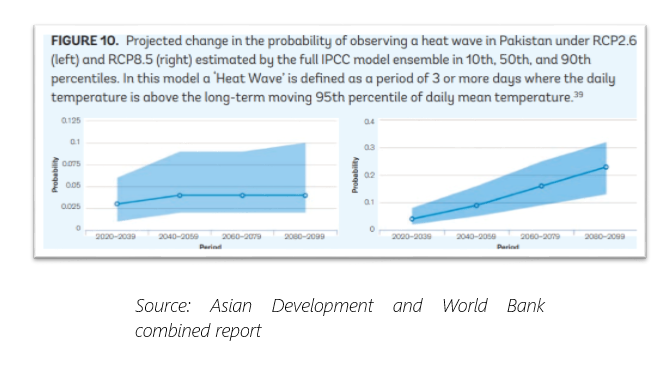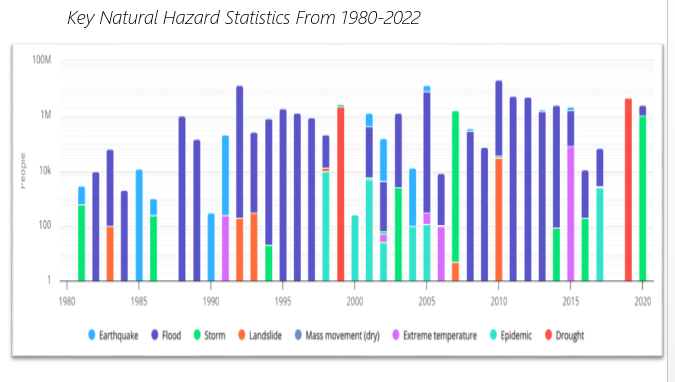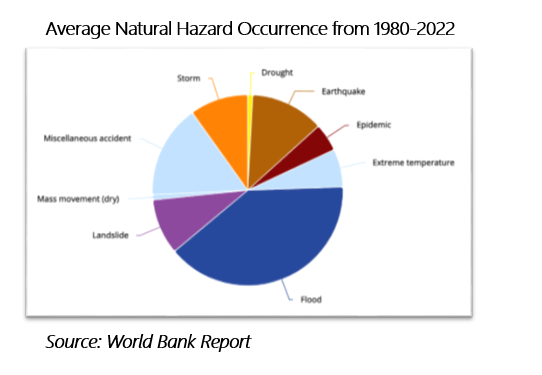INP-WealthPk
Amir Khan
Climate change has amplified the frequency and intensity of natural disasters in Pakistan. A particular concern is the increasing occurrence of heatwaves, which have become a major threat to human health and economy, Saadullah Ayaz, a climate change specialist at the Asian Development Bank, Pakistan, told WealthPK. He said the recent studies had indicated that Pakistan was consistently witnessing some of the highest temperatures globally, with an average monthly

maximum of approximately 27°C and an average maximum of 36°C. The multi-model ensemble predicts that the median annual probability of a heatwave in any specific region may increase from 3% to 4%–23% based on the emissions pathway. “The consequences of these heatwaves are alarming. During a severe heatwave in 2015, over 65,000 people were hospitalized with heatstroke, and over 1,200 deaths were recorded. Major cities like Karachi and Lahore have been identified as particularly vulnerable to the impacts of extreme heat, with a high risk of heat-related mortality even under lower emissions scenario,” he explained.

Source: World Bank Data
Moreover, droughts are becoming increasingly frequent and severe. Pakistan faces two types of droughts: meteorological, associated with precipitation deficits, and hydrological, linked to surface and subsurface water deficits. Currently, Pakistan experiences an annual median probability of severe meteorological drought of around 3%. However, climate models project a significant increase in the possibility of severe drought conditions, reaching 25% to 65% across the country by the end of the century, depending on emissions pathways, he said.

The economic impact of these disasters is severe, resulting in crop failures, food scarcity, increased reliance on external aid, and livelihood losses. Additionally, heat waves lead to increased healthcare costs due to illnesses and hospitalizations. Saadullah recommended that Pakistan should focus on specific policies to effectively tackle the climate challenges. He suggested that Pakistan should prioritize bolstering climate resilience and disaster preparedness through substantial investments in early warning systems, better water management, and implementation of climate-smart agriculture practices. “To combat the negative impacts of heatwaves, the government must actively encourage widespread adoption of renewable energy sources.
By emphasizing renewable energy, Pakistan can significantly decrease greenhouse gas emissions and mitigate the rising temperatures. “To tackle the growing issue of droughts, comprehensive water conservation strategies and optimized water resource management are necessary in Pakistan. Investments in water storage facilities and adoption of rainwater harvesting techniques are crucial steps in this direction,” he added. Expressing his concern, the Asian Development Bank climate change specialist said Pakistan's commitment to global climate change mitigation efforts held significance. By diligently working to reduce the greenhouse gas emissions, collaborating with the international organizations, and actively participating in climate agreements, the country can make a substantial contribution to the global fight against climate change, he said.
Credit: INP-WealthPk













